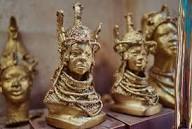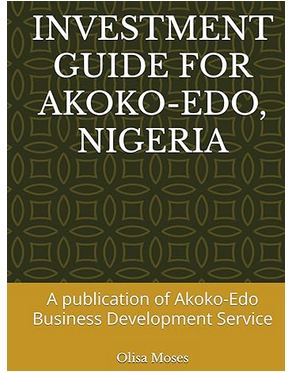Tourism

Description
Tourism is an emerging sector in Edo State, Nigeria, contributing to economic growth, job creation, and cultural preservation. The state, known for its rich cultural heritage, historical sites, festivals, and natural attractions, offers a variety of tourism experiences that attract both domestic and international visitors. Here is a detailed overview of tourism as a part of the economy in Edo State, Nigeria, with references:
Cultural and Heritage Tourism
Benin City and the Benin Kingdom: Benin City, the capital of Edo State, is famous for its historical and cultural significance as the heart of the ancient Benin Kingdom. The city is home to numerous historical sites, including the Oba�s Palace, which is a UNESCO World Heritage site. The palace serves as a cultural hub, attracting tourists interested in the rich history and traditions of the Benin people .
Bronze and Ivory Crafts:The Benin Bronzes, intricate sculptures made from bronze and ivory, are globally recognized for their craftsmanship and historical value. These artifacts, displayed in museums and galleries within the state and abroad, draw art enthusiasts and historians. The National Museum in Benin City houses many of these artworks, offering insights into the state's artistic heritage and attracting cultural tourism .
Festivals and Traditional Ceremonies: Edo State is renowned for its vibrant festivals and traditional ceremonies, which are key attractions for tourists. The Igue Festival, celebrated to mark the end of the Benin year, and the Ekaba Festival are notable cultural events that draw visitors from around the world. These festivals provide an opportunity for tourists to experience the state's rich cultural heritage, traditional dances, and local cuisine .
Historical and Archaeological Sites
Benin Moat (Iya):The Benin Moat, also known as the Walls of Benin, is one of the largest man-made structures in the world. Constructed as a defense mechanism for the ancient Benin Kingdom, the moat is a significant archaeological and historical site that attracts tourists interested in ancient African civilizations and engineering feats
Emotan Statue:The Emotan Statue in Benin City commemorates Emotan, a legendary figure known for her role in supporting the Oba of Benin. The statue is a popular tourist attraction, offering visitors a glimpse into the history and folklore of Edo State. It is also a focal point for cultural tours and storytelling .
Chief Tony Anenih Geriatric Centre:This historical building, located within the University of Benin, is another notable site for visitors. It serves as a cultural and historical monument, providing insights into the state's medical history and colonial architecture .
Natural Attractions
Okomu National Park: Okomu National Park, located in the southwestern part of Edo State, is a major ecotourism destination. The park, a remnant of the Nigerian rainforest, is home to diverse wildlife, including elephants, chimpanzees, white-throated monkeys, and various bird species. It offers tourists opportunities for wildlife viewing, bird watching, and nature walks, contributing to the state's eco-tourism sector .
Ososo Hills: The Ososo Hills in Edo State are known for their scenic beauty and cool climate, making them a popular destination for hiking, rock climbing, and picnics. The hills provide breathtaking views of the surrounding landscape and are a significant attraction for adventure tourists and nature enthusiasts .
Rivers and Waterfalls: Edo State features several rivers and waterfalls, such as the River Niger at Agenebode and the Okpekpe Waterfalls. These natural attractions are ideal for fishing, boating, and sightseeing, adding to the state's tourism appeal .
Religious Tourism
Pilgrimage Sites: Edo State is also known for its religious tourism, with several pilgrimage sites attracting visitors throughout the year. The Holy Aruosa Cathedral, one of the oldest churches in Nigeria, and the Ugboha Catholic Pilgrimage Centre are significant religious landmarks. These sites attract pilgrims and tourists interested in the religious history and practices of the state .
Faith-Based Festivals: Religious festivals, such as the annual Catholic pilgrimage in Uromi and various church conventions, draw visitors from across Nigeria and beyond. These events contribute to the local economy through spending on accommodation, food, and transportation .
Tourism Infrastructure and Services
Hotels and Hospitality Industry: Edo State has a growing hospitality industry, with numerous hotels, guesthouses, and resorts catering to tourists. Benin City, in particular, has a range of accommodations, from budget hotels to luxury resorts, providing options for different types of travelers. The growth of the hospitality sector has created jobs and supported local businesses, including restaurants, tour operators, and transport services .
Transportation and Accessibility:The state is accessible by road and air, with the Benin Airport serving as the main entry point for air travelers. The state's road network connects major tourist attractions and facilitates easy movement for tourists. Additionally, the state government has invested in improving transport infrastructure to boost tourism .
Economic Impact of Tourism
Revenue Generation: Tourism contributes to Edo State's economy by generating revenue through taxes, entrance fees to tourist sites, and spending by visitors on accommodation, food, and souvenirs. The state government has recognized the potential of tourism as a revenue source and has made efforts to enhance the sector .
Job Creation: The tourism industry provides employment opportunities for locals in areas such as hospitality, tour guiding, transportation, and artisanal crafts. This has helped reduce unemployment and promote economic development in the state .
Conclusion
Tourism in Edo State has significant potential to contribute to the state's economic development through revenue generation, job creation, and cultural preservation. With its rich cultural heritage, historical sites, natural attractions, and festivals, Edo State offers a diverse range of tourism experiences. Addressing challenges such as infrastructure and security and leveraging digital tools for promotion can enhance the state�s tourism sector and attract more visitors.
References
1. Edo State Ministry of Arts, Culture, Tourism, and Diaspora Affairs, "Tourism Development Report," 2022.
2. UNESCO World Heritage Centre, "Benin City Cultural Heritage Sites," 2023.
3. National Museum of Benin City, "Benin Art and Artifacts: A Historical Overview," 2022.
4. Nigeria Tourism Development Corporation (NTDC), "Tourism and Economic Impact in Nigeria: Focus on Edo State," 2023.
5. Okomu National Park Conservation Report, "Wildlife and Ecotourism in Edo State," 2021.
6. Ososo Hills Tourist Guide, "Adventure Tourism in Edo State," 2022.
7. Journal of African Cultural Studies, "Festivals and Traditional Ceremonies in Edo State," 2021.
8. Edo State Bureau of Statistics, "Economic Contributions of the Hospitality Sector in Edo State," 2022.
9. Journal of Sustainable Tourism, "Challenges and Opportunities for Tourism Development in Edo State," 2022.
10. World Bank Report, "Infrastructure and Tourism in Nigeria: Case Study of Edo State," 2021.
11.Edo State Tourism Promotion Board, "Strategies for Enhancing Tourism in Edo State," 2023.
12. National Bureau of Statistics (NBS), "Economic Impact of Festivals and Religious Tourism in Nigeria," 2022.

Related Content
Opdwodowkdwiidwok djwkqdwqofhjqwlsqj jfkmclasdkjfjewlfjkwkdjoiqw fnedkwdkowfwhi jiowjiowhfiwkj rohriowjropwjrofwjrijeiwo edostatearchives.org
Opdwodowkdwiidwok djwkqdwqofhjqwlsqj jfkmclasdkjfjewlfjkwkdjoiqw fnedkwdkowfwhi jiowjiowhfiwkj rohriowjropwjrofwjrijeiwo edostatearchives.org
.png)
.png)











